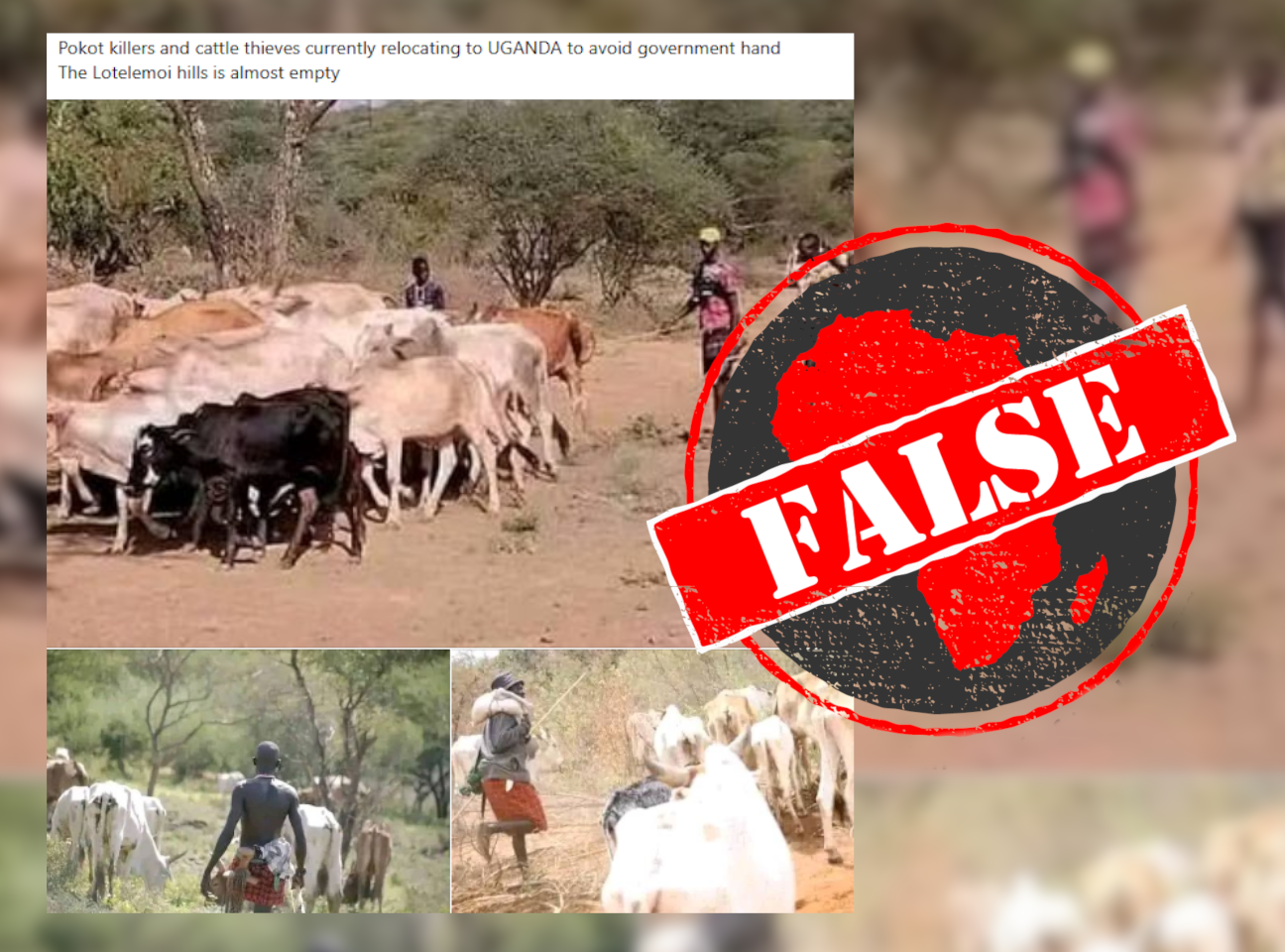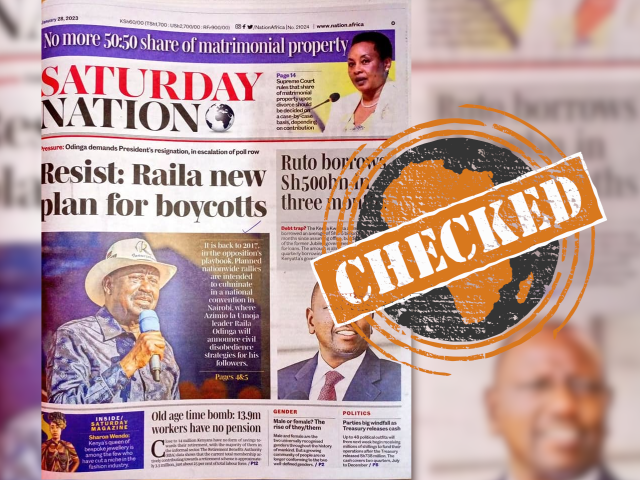IN SHORT: After armed men killed police and civilians in Kenya’s Rift Valley in February, a security operation was launched against bandits and cattle rustlers. But photos on social media don’t show rustlers fleeing the operation for Uganda – they were snapped months and years ago.
Photos doing the rounds on Facebook and Twitter show men driving cattle between trees and shrubs. They’re being posted with the claim that the men are “killers and cattle thieves” from the Pokot community escaping to Uganda after the government launched a security operation in their region.
“Pokot killers and cattle thieves currently relocating to UGANDA to avoid government hand. The Lotelemoi hills is almost empty,” a typical caption to the photos reads.
The Pokot people are part of the larger Kalenjin community in Kenya’s northern Rift Valley region. The community – and others in the region such as the Turkana, Marakwet, Tugen, Illchamus and Samburu – have long been entangled in armed cattle-raiding and other violence.
In February 2023, armed men killed civilians and police officers on the Kital-Lodwar highway in the Rift Valley’s Turkana county.
In response, the government launched a security operation with police and soldiers targeting bandits and cattle rustlers in the region.
But do these photos show cattle rustlers escaping to Kenya’s western neighbour of Uganda? We checked.

Old photos of herders
A reverse image search of the first photo reveals it has been online for almost a year. It appears in an article on the Star newspaper’s website, dated 18 May 2022.
Here the photo’s caption reads: “Pokot herders armed with machetes and sticks driving livestock in Kamusuk, Tiaty Sub-county.” It doesn’t mention “killers and cattle thieves”.
A reverse image search of the second photo reveals it was first published on 7 September 2022. The caption explains that it shows a Pokot herder driving cattle in Baringo county.
A reverse image search of the third photo reveals it was published in December 2017.
None of the photos show cattle rustlers escaping the security operation in February 2023.
Republish our content for free
For publishers: what to do if your post is rated false
A fact-checker has rated your Facebook or Instagram post as “false”, “altered”, “partly false” or “missing context”. This could have serious consequences. What do you do?
Click on our guide for the steps you should follow.
Publishers guideAfrica Check teams up with Facebook
Africa Check is a partner in Meta's third-party fact-checking programme to help stop the spread of false information on social media.
The content we rate as “false” will be downgraded on Facebook and Instagram. This means fewer people will see it.
You can also help identify false information on Facebook. This guide explains how.



Add new comment